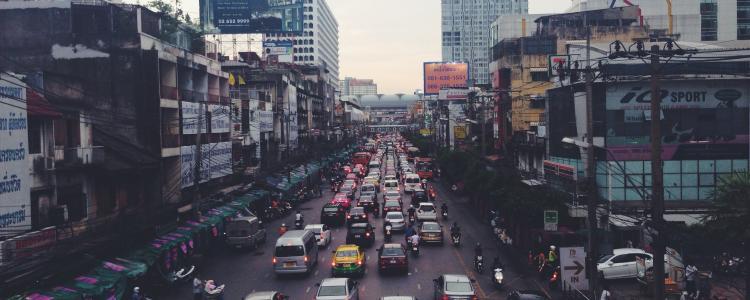None of us like the thought of road traffic accidents (RTAs) abroad and very few of us consider that we could be involved in one ourselves, but the reality is that accidents happen on the roads across the world. In developing countries with poor infrastructure and road safety laws travellers are at a greater risk of incidents on the road. To help keep you safe, the important thing is to be aware of the risks and know how to reduce them. So please read on…
Did You Know?
India has some of the world most dangerous roads. According to a recent report by the BBC, fifteen people are killed every hour in road accidents in India. Ambulances are in short supply, poorly equipped and can be very slow to arrive.
According to the Foreign office, in 2011 there were 68,582 road traffic incidents in Thailand resulting in 9,205 deaths involving both Thai residents and tourists. In contrast to this 1,901 people were killed in road accidents in the UK in 2011.
Only 28 countries representing 7% of the world’s population have adequate road laws addressing speed, drink driving, and use of helmets, seat-belts and child restraints.
Remember, if an accident happens, the quality of health care provisions can be very poor which could put you at risk of blood borne infections like Hepatitis B and may lead to a delay in quality treatment being provided. Speak to a travel health specialist regarding vaccinations and medical kits
The Risks
Travellers are at risk of Road traffic crashes and accidents due to the following factors:
• Lack of familiarity with the roads
• Not used to driving on the opposite side of the road
• Lack of seat belt use and laws to wear a seatbelt
• Driving a vehicle under the influence of alcohol
• Poorly maintained vehicles
• Poorly maintained road surfaces without hard shoulders and unprotected curves and cliffs
• Poor visibility on the roads at night due to inadequate lighting
• Stop signs and traffic lights often ignored by drivers
• High volume and mix of traffic, involving cars, buses, taxis, rickshaws, large trucks, people and animals on the roads
Recommendations & Advice
• Always wear a seatbelt in a moving vehicle
• Be alert when crossing roads particularly if not used the difference in direction of traffic
• Avoid travelling on the road at night
• Don’t ride motorcycles especially if not experienced
• If renting a moped, motorbike or bicycle helmets should always be worn
• Drink responsibly and do not drive any vehicle under the influence of alcohol
• Do not travel if you suspect the driver is under the influence of drugs or alcohol
• Before getting in a vehicle inspect it for bald tyres, seatbelts and working lights
• Use a reputable bus or taxi company with seatbelts – these can often be arranged through your hotel
• If you do intend to drive a car or moped /motorbike you should make sure that tyres are in good condition and that the breaks work. Learn road signs; understand driving customs and road conditions
• Do not travel on overcrowded, overweight, or top-heavy buses
Prepare Before Travel
• Purchase appropriate travel health insurance that includes medical repatriation and covers you for the activities you intend to partake in
• Purchase a Personal medical kit that includes sterile needles and syringes and always have this available in your day bag
• Check out the government’s foreign travel advice on road travel for the country you are visiting (Gov.uk)
• Have an emergency plan in place. Have details of the local nearest medical centre and embassy. Embassy details can be found on Gov.uk
General Rule
Remember Travelling abroad does not remove the dangers of road traffic accidents. There may not be seatbelt or helmet laws in other countries, but you should continue to maintain the legal safety standards that you perform in the UK. Just because there is no law, doesn’t mean that the risks don’t exist and that it is ok to let your guard down and engage in risky behaviours.
Book Now to visit one of the Nomad Travel Health Nurses who can undertake an individual risk assessment and give up to date advice on appropriate actions to take and factors to consider to avoid RTAs at your travel destination.


No Comments
Be the first to start a conversation